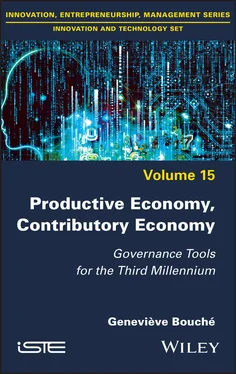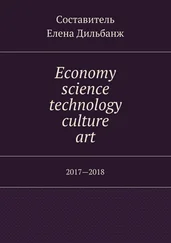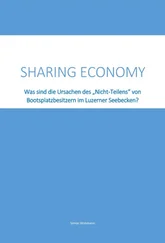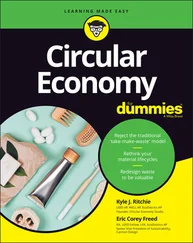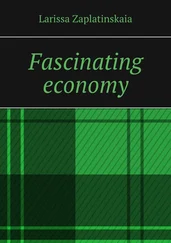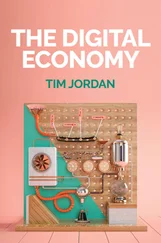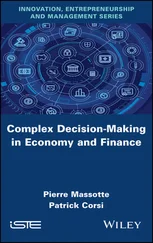This sounds like a natural phenomenon, and indeed it is: to bring out a source of wealth, particular mental and behavioral dispositions are needed. It is possible to transmit our flame to a few generations, but rarely beyond that.
Life in nature is an eternal process of trial and error. Our DNA contains the traces of this process. A family is a living body just as a tribe and now a nation is. The “beings” who succeed one another over time have a memory that stores feedback so that each subsequent generation does not “reinvent the wheel”.
Our institutions are not designed to deviate from their role in the context that created them. Thus, they are a strength in the ascending phase of civilization, and then they become a liability. This is what makes changes in civilization dangerous, because a civilization cannot function without institutions.
Revolutions have the effect of breaking institutions, but they do damage and do not always lead to the right result. Even if the “next model” is clearly spelled out, it is difficult to avoid the chaos phase.
But the “next model” is rarely known. It is generally brought by the barbarians who impose their own by subjugating the fallen civilization. At first sight, this is not reassuring for the West. But what is the situation more specifically for Europe?
Europe, like the Middle East in its time, dominated the world for over 300 years. But now it is no longer the case. It is a collection of states that have been at war with each other. The countries of the South are weak links with their still active monarchical culture. The countries of the North have more cooperative governance structures. Germany, in its current form, is a recent structure and has already freed itself from the hierarchical model. It is better equipped to deal with the complex world that is coming at us.
Europe is not in a suicidal phase, but in a phase of renewal. Its challenge will be to make Europe without affecting the pride of each of its member countries. This process is stimulated by external threats.
Each country must do its part to make progress. For example, for France, it is a question of looking back at 800 years of centralization and the way in which its elite was formed, which inherited the flamboyant governing practices of the time of Louis XIV, Napoleon and de Gaulle. These monarchs had a vision and knew how to be demanding. But a sustainable organization cannot be built around the idea that extraordinary personalities are permanently available on our soil. We need a more realistic and less elitist model.
In order to “make a renaissance”, there must be opportunities for innovation that mobilize hope and desire. We must favor both the visionaries and the doers. In order not to wait a few centuries for our next monarch, we must do as our European neighbors have done: adopt a governance that goes from the bottom to the top, while being positive and demanding.
This is currently happening with renewable energy and the necessary digital redesign.
And then there has to be the spark that gets it started. Every geopolitical zone can look out for its spark.
For Europe, we have, for example, the renewal of its governance with the arrival of Mrs von der Leyen and her team of Commissioners. We also have Covid-19, which forces us to rethink the debt of States and the idea that we have of essential jobs.
1.3. Known risks of our model
The European model of society is probably not the worst one, since it serves as a reference for other parts of the world, which in fact shape their own model. But it has shortcomings that we never talk about and that we will have to examine.
1.3.1. No tolerance thresholds
The so-called “Western” model was born at the end of the 18th century in Europe with the discovery of coal in Germany. This coal made it possible to develop steel and industry in general. This industry was described as heavy because it mobilized a lot of energy, financial and human resources.
This industrialization made it possible to manufacture products in large quantities that were previously very labor-intensive. In order to make the investment profitable, it was necessary to sell in large quantities, which gave rise to marketing.
Everything worked well as long as we were in a demand 8economy. There was no need to set production maximums: demand was always greater than supply. It was a time when bad products found takers, even without marketing!
This has led to the development of a business and economic doctrine that ignores the notion of tolerance. In any system, the interacting components are designed to remain within a tolerance range that lies between a minimum and a maximum value.
For the doctor examines the blood pressure, and if it is outside the tolerance limits, a problem must be discovered and treated.
All the parts of a mechanical system respect tolerances compatible with each other, so that the machine functions when there are variations in temperature, humidity or vibrations.
Our model of society does not care about this: no limit to enrichment, nor to the production of goods!
Today, this lack of tolerance thresholds may seem surprising and even arrogant on the part of the human race. It is simply the world view of the last few centuries in Europe, which, through its demography, effectively dominated the world a few centuries ago. However, among the progress we have propagated, we have reduced mortality (diseases, accidents, wars), without compensatory regulation. Unlike animals, we have let our demography run away.
This land, Europe, is Christian, and in the Book of Genesis, God tells man that he will find everything he needs in nature. With the conquest of the “new world” and then with technological progress, we have the impression that we will solve all problems by constantly finding substitutes for the raw materials we lack. It remains true, however, that humans cannot heckle their environment without measuring the consequences.
The nomads knew this notion of a limit to consumption: not to wear down nature and to let it reproduce. The 19th-century European thought was not very far-sighted, or at least it was indifferent to the warnings of philosophers (who had become economists) who were asking questions about the world that the “industrialists” were predicting for us. American thought, which is merely an extension of European thought, was not concerned about this either.
The mobilization of capital and men, at the time of the birth of the industry in Europe, was carried by the slogan “the betterment for all through technical progress”. Many sacrifices were required of Europeans to set up this so-called “heavy industry”. Many books bear witness to this, including those by Émile Zola.
With the conquest of the oceans and the rise of the United States, Western civilization took shape in the eyes of the other occupants of the planet. It became Americanized with the promise of the “new world”. It demands many sacrifices from its migrants. It replaces the term “progress” with the term “innovation” and the term “technique” with the term “technology”. The result is not the same.
“Progress” indicates that there is a search for improvement. “Innovation” indicates that it doesn’t matter what came before. That is what the migrants did when they arrived on American soil. They did not seek to get the instruction manual for climate and geography. They did as they pleased, without listening to what the natives had to say.
“Technique” does not make politics. It is not at the service of a particular cause, it is simply the fruit of the fascination of those who conceive it. It has its place in the sun only when an intuitive decides to make it emerge.
Читать дальше
